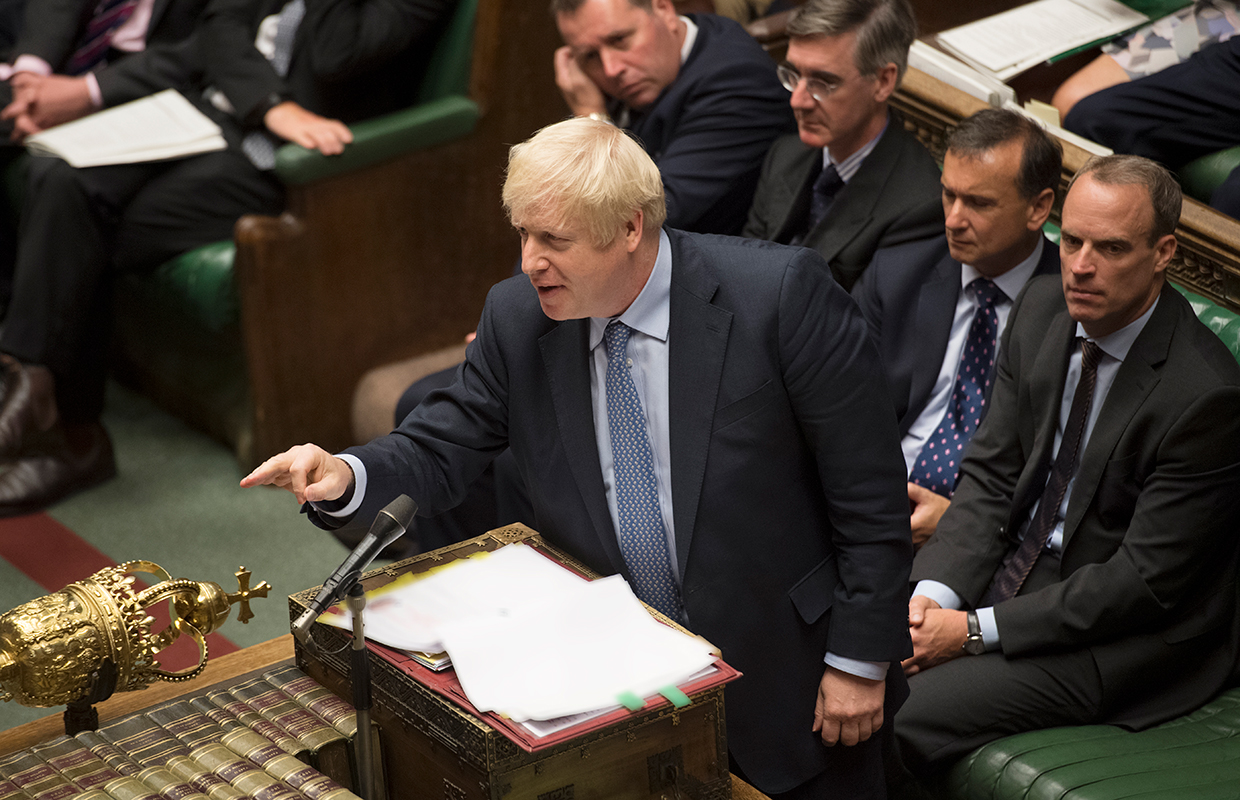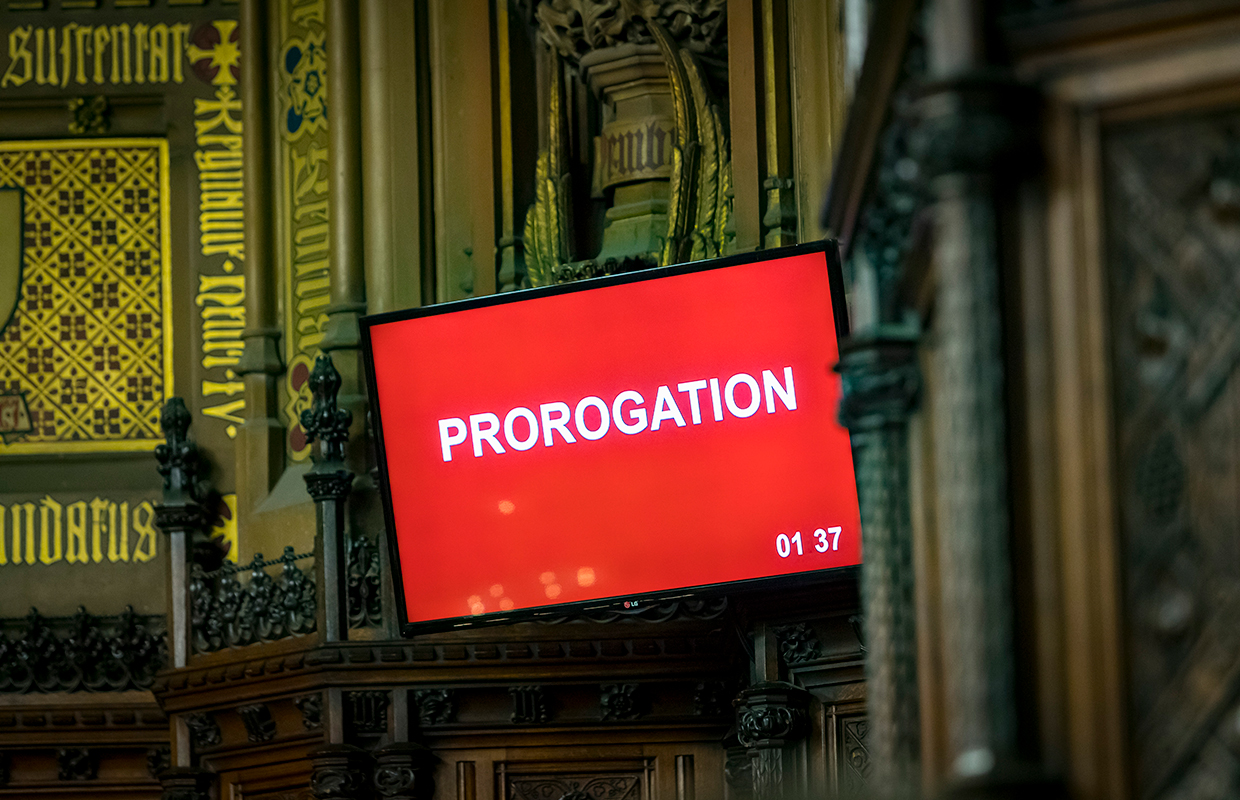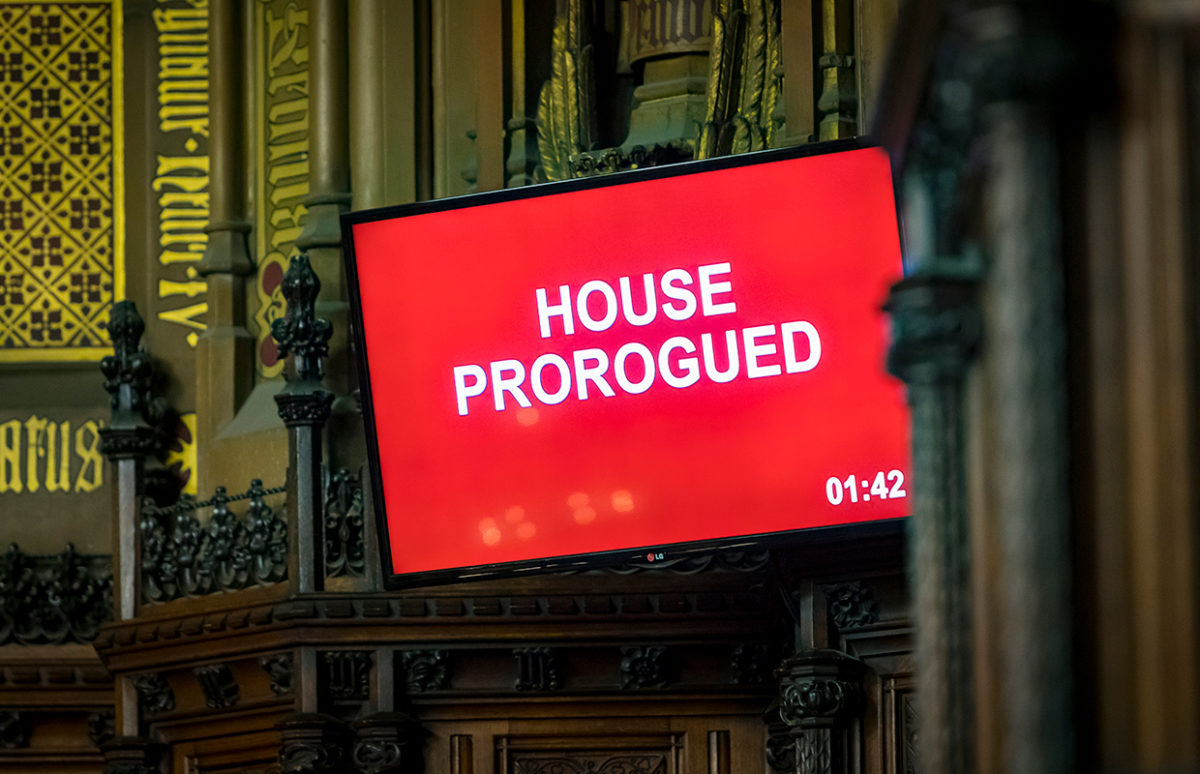The noun prorogation and the verb prorogue were not part of most British people's vocabulary until August 2019. Now, they're the words on everyone's lips.
Prorogation is the suspension of Parliament. It's not a dissolution, which happens before a new election. It's as if the pause button has been hit. Prorogations usually happen about once a year, just before the government presents its programme for the upcoming months in the Queen’s Speech. And they usually attract little comment.
Parliament was prorogued on 10 September 2019 and won’t reopen until 14 October. The new Prime Minister, Boris Johnson, insists this is a normal prorogation to allow his government to prepare legislation on domestic matters which have been largely forgotten during months of debates over Brexit, and the change of Prime Minister. Opposition parties believe it is a strategy to stop Parliament discussing any new deal for Brexit reached with the European Union, and effectively force the UK to leave the UK without a deal on 31 October. The five-week suspension is much longer than the last two prorogations: 5 days in 2016 and 3 in 2015
Mr Johnson announced the prorogation had received royal assent on 28 August, just before MPs returned from the summer recess on 3 September.

Six Defeats in Six Days
The short parliamentary session from 3-10 September saw a series of defeats for Mr Johnson as one Conservative MP joined the Liberal Democrats, leaving the government without a majority, even allowing for their agreement with the Northern Irish DUP. Then 21 more Tory MPs voted against the government to pass a law effectively blocking a no-deal Brexit by forcing the Prime Minister to ask the EU for the Brexit deadline to be extended for three months beyond 31 October if no deal has been agreed by the UK and Brussels by 19 October. The Prime Minister then twice asked Parliament to call a snap general election before the Halloween deadline, and was defeated both times.
There are legal battles continuing about the prorogation: a Scottish court ruled it was unlawful while an English one supported it. The Supreme Court will examine the issue from 17 September. The Opposition hopes the prorogation will be found illegal and MPs recalled to Parliament. If not, Parliament will resume on 14 October, just before an EU summit on 17-18 October seen as the last chance for a Brexit deal, or the forum to ask for a further delay.

Copyright(s) :
Copyright House of Lords 2019 / Photography by Roger Harris
UK Parliament
Tag(s) : "Boris Johnson" "Brexit" "British politics" "prorogation" "UK parliament" "word of the moment"





